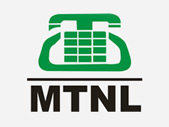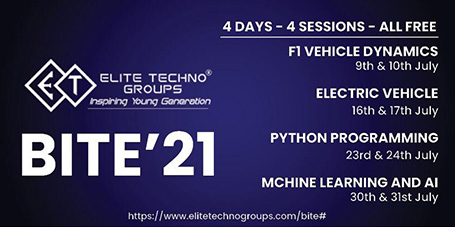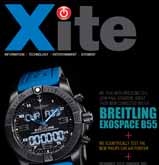|
|
Snapdeal posts Rs 4,647 crore net loss in 2016-17
 E-commerce firm Snapdeal saw its losses mounting to Rs 4,647 crore for the fiscal ending March 2017, impacted by a provision for "impairment of goodwill" of Rs 1,797 crore. According to regulatory filing to the Corporate Affairs Ministry by Jasper Infotech, which runs Snapdeal, had registered a net loss of Rs 3,340 crore in 2015-16. The company's total income also declined by 12.6 per cent to Rs 1,291.3 crore in FY2017 from Rs 1,478.2 crore in the previous year. When contacted, Snapdeal spokesperson said the financial statement for the year 2016-17 "reflects the first stage of Snapdeal's focus on unit economics and business efficiencies". E-commerce firm Snapdeal saw its losses mounting to Rs 4,647 crore for the fiscal ending March 2017, impacted by a provision for "impairment of goodwill" of Rs 1,797 crore. According to regulatory filing to the Corporate Affairs Ministry by Jasper Infotech, which runs Snapdeal, had registered a net loss of Rs 3,340 crore in 2015-16. The company's total income also declined by 12.6 per cent to Rs 1,291.3 crore in FY2017 from Rs 1,478.2 crore in the previous year. When contacted, Snapdeal spokesperson said the financial statement for the year 2016-17 "reflects the first stage of Snapdeal's focus on unit economics and business efficiencies".
"Key highlights in this regard are the reduction in fulfilment cost by more than 20 per cent (as a percentage of operating revenue) and reduction in operational losses by nearly 25 per cent (excluding non-recurring cost on account of impairment of assets)," the spokesperson said.
He added that the company continues to make "rapid progress in driving profitable growth, which will be reflected in the results for the financial year 2017-18".
Snapdeal has seen its business being impacted severely by the intense competition in the e-commerce segment. While players, including the likes of Amazon and Flipkart, have pumped in billions of dollars in investments, they continue to operate in losses. Analysts are of the view that it will be a couple of years before these players can hit profitability. Last year, Snapdeal dumped the USD 950-million takeover offer from Flipkart with Snapdeal founders Kunal Bahl and Rohit Bansal saying the company will pursue a fresh strategy in the Indian market.
Last year, Snapdeal sold its payment services unit, Freecharge to Axis Bank for Rs 385 crore, almost 90 per cent lower than what it had paid for the firm in 2015. In January this year, its logistics arm -- Vulcan Express -- was acquired by Kishore Biyani's Future Supply Chain Solutions in an all-cash deal valued at Rs 35 crore.
Snapdeal has also significantly reduced its headcount to rein in costs. (Source: Economic Times)
|
Display ticker for DD's telecast of games of 'national importance': I&B to Broadcasters
 India’s Ministry of Information and Broadcasting (MIB) on April 25 issued a notice mandating all TV channels broadcasting live sports of “national importance” to display a ticker with immediate effect stating the match was also available on DD’s free-to-air platform irking sports broadcasters. India’s Ministry of Information and Broadcasting (MIB) on April 25 issued a notice mandating all TV channels broadcasting live sports of “national importance” to display a ticker with immediate effect stating the match was also available on DD’s free-to-air platform irking sports broadcasters.
The order requires channels to run the scroll — ‘This match/game can also be viewed on DD Sports channel on DD Free Dish DTH and DD’s terrestrial network on freeto-air basis’ — in appropriate colour, font and size making it prominently visible every 15 minutes.
Former I&B Minister Manish Tewari called the directive “absurd”.
QUESTIONING THE DIKTAT
“Asking channels to run a scroll is a logic-defying move as only those who have subscribed to pay channels will be able to see the scroll. Is I&B Ministry telling those viewers to unsubscribe and move to free-to-air platforms?” Tewari told ET.
The fundamental question that needs to be asked is does the public broadcaster have a unique and special place in a liberated media environment that stretched back 27 years to 1991 when satellite television entered India, Tewari said.
“In an environment where we have 891 TV channels, is there a case for Prasar Bharati is a question no one is asking. And if the answer is no, the entire act needs to be revisited,” Tewari said.
A questionnaire sent to the ministry seeking a reason behind the notice did not elicit any response till press time Sunday.
Most TV broadcasters and media experts see this as an irritant and as a free marketing ploy for DD Sports.
“This diktat lacks any statutory or policy foundation. Rather, it goes way beyond the remit of the Sport Mandatory Sharing Act as adjudicated upon by the Supreme Court in its judgement in the matter of Union of India vs BCCI dated August 22, 2017. If this notice is not challenged or allowed to be implemented, then it will undermine the investments made by private broadcasters in acquiring rights from sports federations,” said one broadcasting executive, who did not wish to be identified.
Star India and Sony Pictures Networks India did not respond to ET’s request for comment on their next course of action and impact of the order. But sources said both broadcasters are looking at legal options and may move court against the order.
“This is an illogical move as after the Supreme Court order, the DD channel, where the matches will be shared, will not be available on private DTH or cable. So there is no advantage to DD, apart from getting free publicity,” an industry expert said.
GAMES OF NATIONAL IMPORTANCE
Earlier, MIB had tried to get Indian Premier League (IPL) matches under the ambit of games of “national importance.”
However, the sports ministry had rejected the proposal after which, Star India agreed to share one IPL match every week with DD with one hour delay.
Games of national importance are typically those in which India is playing global sporting events and the finals of top tournaments. The Sports Broadcasting Signals (Mandatory Sharing with Prasar Bharati) Act, 2007, made it compulsory for private broadcasters to provide access to sporting events of “national importance” to the largest number of listeners and viewers on a free-to-air basis.
DD National then started getting live feed of Indian cricket matches, the Olympics and other important events and Prasar Bharati shared advertising revenues with the rights holder.
The private broadcasters went to court and on August 22 last year, the Supreme Court asked Prasar Bharati to air the events only on terrestrial networks or on DD Free-Dish and not on channels like DD 1, which is notified as a must-carry channel for all pay TV (cable and DTH) operators according to the Cable Television Networks (Regulation) Act, 1995.
PRASAR BHARTI’S PORTFOLIO
In March last year, the MIB notified the Commonwealth Games, Asian Games, summer and special Olympics, Paralympics and certain tennis, hockey and football events as sporting events of national importance. In October 2016, the ministry declared that all official one-day internationals, Twenty20 and Test matches played by the Indian men’s cricket team, semifinals and finals of the men’s World Cup and International Cricket Council Championship Trophy as cricketing events of national importance. (Source: Economic Times)
|
Cashback to biz, price benefit to consumers for digital transactions on anvil  The government is working on a proposal to incentivise digital transactions by providing cashbacks to businesses and price benefits to consumers, a source said. The government is working on a proposal to incentivise digital transactions by providing cashbacks to businesses and price benefits to consumers, a source said.
As per the proposal being worked out by the Revenue Department, consumers paying through the digital mode would be offered a discount over the maximum retail price (MRP). The discount would be capped at Rs 100. Businesses, on the other hand, could get a cashback based on the quantum of turnover through the digital mode.
The proposals to encourage digital transactions are likely to be placed before the GST Council, chaired by Finance Minister Arun Jaitley and comprising state ministers, on May 4.
According to the source, the issue of providing incentive for digital transaction was discussed at a meeting held in the Prime Minister’s Office.
During the meeting, three possible modes of incentivising businesses to go in for digital transactions were discussed. Apart from cashbacks, a proposal to allow businesses to obtain tax credit on the basis of turnover obtained through digital mode was also discussed.
This would have worked like the input tax credit mechanism wherein businesses can credit for taxes paid on raw materials.
Besides, the option of allowing businesses to offset their GST liability up to a threshold for using digital transaction was also deliberated.
The source said the Revenue Department has zeroed in on the option of cashback to businesses based on a threshold of digital transaction. This would be easier to implement and cannot be misused by unscrupulous elements.
As a matter of precaution, the department will ascertain the veracity of the digital transactions reported by the businesses and then credit the cashback to their bank account.
During the PMO meeting, it was also discussed if any incentives could be given for digital transaction from the direct taxes side.
The direct tax department, the source said, has outlined the steps it had taken to discourage cash dealings. Besides, for small businesses opting for presumptive taxation scheme, it had reduced the rate for calculation of deemed profit from 8 per cent to 6 per cent in respect of the amount of total turnover or gross receipts received through banking channel/digital means.
The source said since the incentives would have been on the basis of the turnover of the businesses, it was felt that the indirect tax department would be better placed to incentivise the businesses and hence the GST Council would have to give a final go ahead.( Source: The Hindu Business Line)
|
Walmart may get four seats on Flipkart's ten-member board
 Walmart, which is in the midst of protracted negotiations for a significant stake in Flipkart, will likely gain about three to four seats on the ten-member board of India’s largest online retailer that will continue to be run as an independent company if the deal goes through, said three people aware of the discussions. The troika of cofounders Binny Bansal and Sachin Bansal along with chief executive officer Kalyan Krishnamurthy will remain in their current posts as the country’s most valuable startup targets a potential public offer in the future. Walmart, which is in the midst of protracted negotiations for a significant stake in Flipkart, will likely gain about three to four seats on the ten-member board of India’s largest online retailer that will continue to be run as an independent company if the deal goes through, said three people aware of the discussions. The troika of cofounders Binny Bansal and Sachin Bansal along with chief executive officer Kalyan Krishnamurthy will remain in their current posts as the country’s most valuable startup targets a potential public offer in the future.
“Flipkart will keep its “startup culture” to battle Amazon” said one of the people cited above indicating that while the entry of Walmart will alter the shareholding structure of Flipkart — if the deal fructifies — there will be no change in the top management pattern. Binny is currently the Group CEO of Flipkart while Sachin serves as executive chairman.
Meanwhile, a potential offer from rival Amazon to invest in Flipkart, which is also in the fray, is yet to come through, sources said, even as discussions with Walmart head into the final lap. Japan’s Softbank, which owns over 20% stake in Flipkart, is said to be in favour of an offer from Amazon but other investors are wary as they believe that such a deal could run into trouble with competition regulators.
With Walmart expected to invest over $12 billion into Flipkart, some of the industry insiders ET spoke to were of the view that the Bentonville-headquartered conglomerate would look to control finance and legal matters at the entity.
“They may get a CFO at the helm and legal compliance will be handled by Walmart,” said one of the persons cited above.
Walmart is aiming for at least a 55-60% stake in Flipkart in a deal likely to value the company between $18-20 billion, according to the people mentioned above. “They (Walmart) are investing because they don’t know how to run an online commerce company,” said a second source. “With the investment in JD and acquisition of Jet they know that running an online business is very different from running a retail company.”
JD.com is the second largest online retailer in China after Alibaba and Walmart owns about a 12% stake in it. Jet is an online retailer in US acquired by Walmart for $3 billion in 2016. Rahul Chowdhri, a partner at Stellaris Venture believes Walmart will retain the current management structure at Flipkart as “having a local team that has built it from ground- up and understands the local nuances becomes very important.”
“The acquirer ( Walmart) doesn’t have an ecommerce team in India -- so it is difficult to build a team of its own from scratch, but this will be supplemented by their (Walmart’s) global understanding of any technology, knowledge-sharing that will help Flipkart,” he said.
Flipkart’s negotiations also include a clause saying that the company can go for a public offering, said one of the people privy to the discussions. Another person said, “Flipkart is taking a longer-term view and is looking at the entire team. They are excited about the market and want everyone to be incentivised for an IPO.”
But one source warned that an IPO is unlikely to happen before 4-5 years, and will be contingent on either Flipkart reaching profitability milestones or by getting a significant market leadership over Amazon India. Walmart declined to comment. Flipkart did not respond to queries sent by ET as of press time. (Source: Economic Times)
|
Smart City Mission: Tech giants showing interest in setting up smart city centres
 Global technology giants, including Cisco, IBM, and Bosch, are showing keen interest to participate in setting up of smart city centres or integrated command and control system under the Centre’s flagship programme Smart City Mission, a senior official said today. Global technology giants, including Cisco, IBM, and Bosch, are showing keen interest to participate in setting up of smart city centres or integrated command and control system under the Centre’s flagship programme Smart City Mission, a senior official said today.
According to the housing and urban affairs ministry official, HP and Siemens are working to set up such a centre in Bhopal, while Bosch, Cisco, Efkon and Rolta are participating in the development of a ‘smart’ centre in Varanasi.<,/
Honeywell’s expertise would be used for Bhubaneshwar, while Schneider, Cisco and HP would help in setting up of such a centre in Naya Raipur, the official said.
Leading Indian firms, including Larsen and Toubro, Shapoorji Pallonji Group, Bharat Electronics Ltd, Tech Mahindra, are also participating with global technology giants to set up Smart City Centres which are key to the mission, he said.
As many as 99 cities have been selected under the Modi government’s Smart City Mission. Each city will get Rs 500 crore to carry out the projects.
Tenders have been called for 55 cities for setting up such centres which would entail an investment of Rs 5,300 crore, while works worth Rs 2,950 crore has started in 23 cities, the official said.
Smart centres in eight cities -- Ahmedabad, Vadodara, Surat, Pune, Nagpur, Rajkot, Visakhapatnam, and Kakinada -- have become operational, the official said.
These cities are monitoring various services at the centre which included solid waste collection, smart street lights and transit management system.
These centres also offer city-wide surveillance system to enable the administration and police department keep a watch on sensitive areas such as major traffic junctions and tourist places.(Source: The Hindu Businessline)
|
MTNL approaches govt for allotment of 4G spectrum
 The state-owned corporation is seeking 4G radiowaves in both Delhi and Mumbai service areas where it operates. The state-owned corporation is seeking 4G radiowaves in both Delhi and Mumbai service areas where it operates.
Even as its revival options are being mulled, loss-making MTNL, in a bold move, has approached the government seeking allotment of 4G spectrum in two bands and offered its equity in return. Mahanagar Telephone Nigam Ltd (MTNL) CMD P K Purwar said the firm has written to the Telecom Department seeking spectrum in the 1800 and 2100 MHz bands to launch 4G services in order to strengthen its service portfolio in a fiercely-competitive telecom market.
"To survive in the mobile telephony market, 4G presence is a must. MTNL has submitted a proposal to the Department of Telecom (DoT) for allotment of 4G spectrum recently," Purwar told PTI. The state-owned corporation is seeking 4G radiowaves in both Delhi and Mumbai service areas (also called circles) where it operates.
"In the market, over 85 per cent downloads are taking place in data in 4G. In this competitive landscape every single operator has to have presence in 4G. To compete effectively, MTNL also requires 4G services in its portfolio," he said. MTNL is seeking 10MHz in Delhi in the 1800 band and 5MHz in Mumbai in 2100 band, and is keen to start its 4G services in the current financial year. The corporation currently has spectrum in the 900, 1800 and 2100 MHz bands, he said, adding that it has 2.2 MHz in 1800 band and 5 MHz in 2100 bands used for 3G services.
"We have said that government has two roles -- one as licensor and another as a promoter of MTNL. As a licensor they are duty-bound to take their financial charges for allocation of spectrum. MTNL has requested that payment should be taken by the government in the form of equity. As per our initial assessment, the spectrum block should cost roughly Rs 6,500 crore," Purwar said. MTNL, he added, is ready to issue equity shares to the government as per market rate in lieu ofspectrum allocated. This, he said, will ensure that MTNL is not burdened with additional debt.
The government currently holds 56 per cent stake in MTNL, while Life Insurance Corporation has about 19 per cent. The rest is with the public. MTNL's debt stands at a staggering Rs 17,000 crore, and its annual interest burden is close to Rs 1,450 crore. Bruised by a fierce competition from private sector players, MTNL's losses stood at Rs 2,893 crore in 2014-15, Rs 2,005 crore in 2015-16, and Rs 2,970 crore in 2016-17.
Telecom Minister Manoj Sinha, in a written reply to the Lok Sabha in February, had pointed out that both BSNL (Bharat Sanchar Nigam Ltd) and MTNL have been incurring losses for a number of years, and therefore, have been declared as incipient sick as per Department of Public Enterprises (DPE) guidelines. Sinha had also said that the revival plan of MTNL prepared by its consultant "is under consideration" by DoT.
The recommendations include defending current revenue and additional revenue streams, asset monetisation, lowering retirement age from 60 to 58 years for employees, Voluntary Retirement Scheme (VRS), debt restructuring and finding synergy in operations of MTNL and BSNL.(Source: ETtelecom)
|
 E-commerce firm Snapdeal saw its losses mounting to Rs 4,647 crore for the fiscal ending March 2017, impacted by a provision for "impairment of goodwill" of Rs 1,797 crore. According to regulatory filing to the Corporate Affairs Ministry by Jasper Infotech, which runs Snapdeal, had registered a net loss of Rs 3,340 crore in 2015-16. The company's total income also declined by 12.6 per cent to Rs 1,291.3 crore in FY2017 from Rs 1,478.2 crore in the previous year. When contacted, Snapdeal spokesperson said the financial statement for the year 2016-17 "reflects the first stage of Snapdeal's focus on unit economics and business efficiencies".
E-commerce firm Snapdeal saw its losses mounting to Rs 4,647 crore for the fiscal ending March 2017, impacted by a provision for "impairment of goodwill" of Rs 1,797 crore. According to regulatory filing to the Corporate Affairs Ministry by Jasper Infotech, which runs Snapdeal, had registered a net loss of Rs 3,340 crore in 2015-16. The company's total income also declined by 12.6 per cent to Rs 1,291.3 crore in FY2017 from Rs 1,478.2 crore in the previous year. When contacted, Snapdeal spokesperson said the financial statement for the year 2016-17 "reflects the first stage of Snapdeal's focus on unit economics and business efficiencies". 
 India’s Ministry of Information and Broadcasting (MIB) on April 25 issued a notice mandating all TV channels broadcasting live sports of “national importance” to display a ticker with immediate effect stating the match was also available on DD’s free-to-air platform irking sports broadcasters.
India’s Ministry of Information and Broadcasting (MIB) on April 25 issued a notice mandating all TV channels broadcasting live sports of “national importance” to display a ticker with immediate effect stating the match was also available on DD’s free-to-air platform irking sports broadcasters.  The government is working on a proposal to incentivise digital transactions by providing cashbacks to businesses and price benefits to consumers, a source said.
The government is working on a proposal to incentivise digital transactions by providing cashbacks to businesses and price benefits to consumers, a source said. Walmart, which is in the midst of protracted negotiations for a significant stake in Flipkart, will likely gain about three to four seats on the ten-member board of India’s largest online retailer that will continue to be run as an independent company if the deal goes through, said three people aware of the discussions. The troika of cofounders Binny Bansal and Sachin Bansal along with chief executive officer Kalyan Krishnamurthy will remain in their current posts as the country’s most valuable startup targets a potential public offer in the future.
Walmart, which is in the midst of protracted negotiations for a significant stake in Flipkart, will likely gain about three to four seats on the ten-member board of India’s largest online retailer that will continue to be run as an independent company if the deal goes through, said three people aware of the discussions. The troika of cofounders Binny Bansal and Sachin Bansal along with chief executive officer Kalyan Krishnamurthy will remain in their current posts as the country’s most valuable startup targets a potential public offer in the future. Global technology giants, including Cisco, IBM, and Bosch, are showing keen interest to participate in setting up of smart city centres or integrated command and control system under the Centre’s flagship programme Smart City Mission, a senior official said today.
Global technology giants, including Cisco, IBM, and Bosch, are showing keen interest to participate in setting up of smart city centres or integrated command and control system under the Centre’s flagship programme Smart City Mission, a senior official said today. The state-owned corporation is seeking 4G radiowaves in both Delhi and Mumbai service areas where it operates.
The state-owned corporation is seeking 4G radiowaves in both Delhi and Mumbai service areas where it operates.





